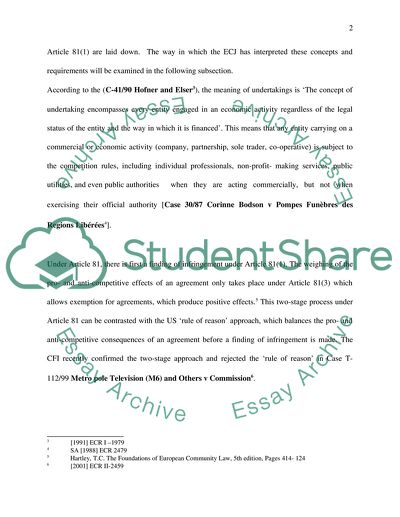Cite this document
(“The treatment of vertical agreements in EC competition law has changed Essay - 1”, n.d.)
The treatment of vertical agreements in EC competition law has changed Essay - 1. Retrieved from https://studentshare.org/miscellaneous/1545118-the-treatment-of-vertical-agreements-in-ec-competition-law-has-changed-significantly-during-the-last-ten-years
The treatment of vertical agreements in EC competition law has changed Essay - 1. Retrieved from https://studentshare.org/miscellaneous/1545118-the-treatment-of-vertical-agreements-in-ec-competition-law-has-changed-significantly-during-the-last-ten-years
(The Treatment of Vertical Agreements in EC Competition Law Has Changed Essay - 1)
The Treatment of Vertical Agreements in EC Competition Law Has Changed Essay - 1. https://studentshare.org/miscellaneous/1545118-the-treatment-of-vertical-agreements-in-ec-competition-law-has-changed-significantly-during-the-last-ten-years.
The Treatment of Vertical Agreements in EC Competition Law Has Changed Essay - 1. https://studentshare.org/miscellaneous/1545118-the-treatment-of-vertical-agreements-in-ec-competition-law-has-changed-significantly-during-the-last-ten-years.
“The Treatment of Vertical Agreements in EC Competition Law Has Changed Essay - 1”, n.d. https://studentshare.org/miscellaneous/1545118-the-treatment-of-vertical-agreements-in-ec-competition-law-has-changed-significantly-during-the-last-ten-years.


